Programming, Electronics, and Computer Science—All With Arduino
Learning to program is no easy task—even for experienced coders. Understanding the core properties of what makes a machine understand an input and in turn do an action can seem practically impossible for a beginner.
However, that initial hurdle doesn’t stop the curiosity of a tinkering mind.
All a student needs is the first step.

Besides taking a screwdriver to the nearest machine possible, Arduino is the first step for the novice programmer. And Cornelius’—better known as “Corny” throughout the Makers at Anchorage MakerSpace—Programming Class acts as the four-session introduction to how it all works.
Arduino is well known for its easy-to-use interface, making it the simplest and most manageable approach when teaching a broad range of students the same electrical interface. As it only runs one piece of code—to turn a light on, for example—the goal per each session is not only accessible, but doable.
“We’re just trying to open a window where the kids have just a little vision of what they can explore.”
There’s designated reason to start with a hands-on interface like Arduino instead of something like coding HTML or Python. At its core, Arduino acts as a computer science building block. It adds experience and exposure to not only computer programming, but electronics in general.
From their very first projects, students can learn what they enjoy doing and what they don’t. At the beginning of session two, they take the driving seat of their learning and go in the direction they feel most attracted to—whether that’s robotics, cameras, more complex processors, motors, or sensors.
Beyond the programming skills the students adopt, they also learn to interact with other machines throughout the MakerSpace, like the computer programs to develop design files and the laser cutter to make the files a reality. Combining their foundational programming skills with the other parts of creating empowers them to shake off the belief that making machines work isn’t possible.
In short, the students learn how to do it all by themselves, with a helping hand from Corny.

The best news is that these classes still continue to this day! Every Tuesday from 6-8 PM, Corny is at the MakerSpace teaching students Arduino.
To learn more about how you yourself can get involved with our Programming Classes in 2020, visit our Open House or send us a message.
Recent Comments